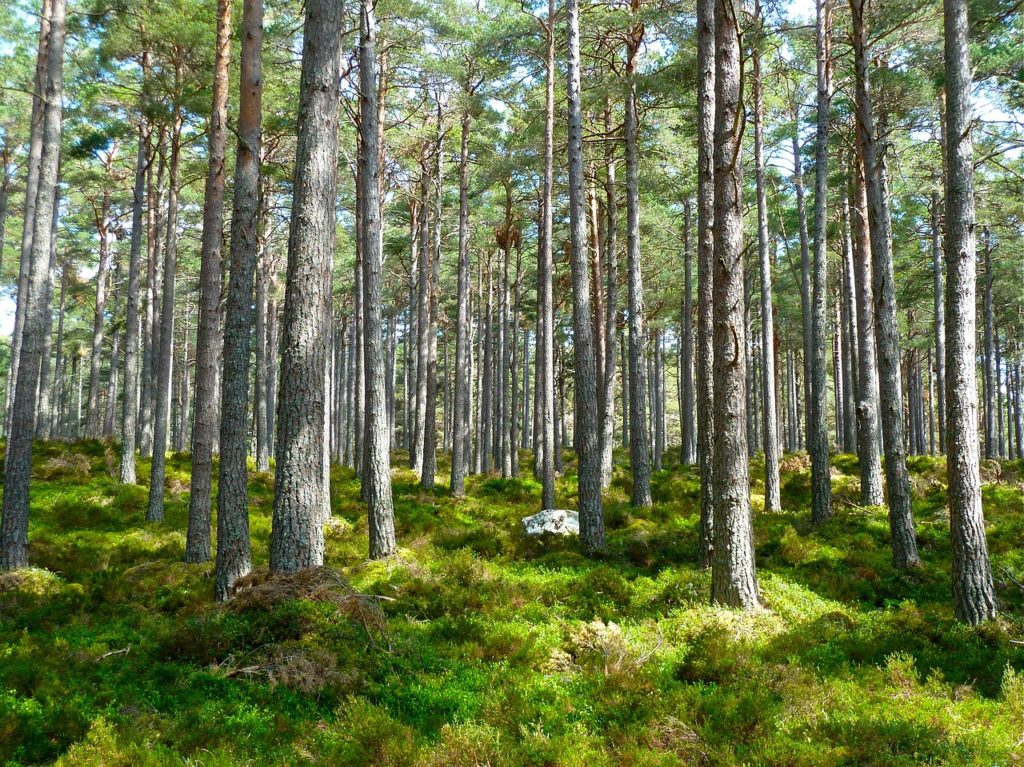Several hundred years of years ago, forests covered 80 percent of Ireland. Human activity, such as farming and home-building, destroyed most of these. At one stage, forests covered as little as one percent of the country.
Our forests are a valuable resource and therefore, the government began the process of re-introducing forest. As a result, now around 11 percent of Irish land is under forest, with plans to increase this to 17 per cent by 2030.
This undertaking is the responsibility of forest managers and forestry workers. They work together in planning and implementing this strategy. Students learn how to develop forests in environmentally correct ways. Understanding the different components – trees, wildlife, soil, climate, and humans – is essential in analysing how best to ensure forests remain a natural resource for years to come.
Education
There are a number of different qualifications available in forestry and related areas. These include dedicated degrees as well as higher certificates in Forest Management and Forestry. You can also study Forestry as a subject on a course such as Horticulture or Agriculture.
Dedicated courses include a combination of general science subjects as well as more specialised classes. Typically, first year students will take Chemistry, Physics and Biology. As the course progresses, they will study subjects such as Silviculture, Soil Types, Ecosystem Management and Forest Biometrics.
Practical skills such as forestry maintenance, tree planting, shaping and harvesting, fencing, spraying and pruning may also be part of the course. Some courses feature a six-month work placement where you can practice your new skills and knowledge in the real world. Students may also study more general subjects such as marketing, tourism and IT, in preparation for working in business and management-related areas of forestry.
Options After Qualification
A higher-level qualification in Forestry can lead down several career paths. Potential employers include Coillte (a government-owned forestry company), local authorities, planting and harvesting services, the sawmill and pulpwood sector and private forest owners. Environmental management, tourism, agriculture, horticulture, landscaping, research and teaching are all options open to people with forestry qualifications.
The Work
Forestry management is usually the starting point for graduates, in order to become accustomed to the everyday running of a forest. This involves tree planting, site and seed choice, ground preparation and drainage, vegetation control, pruning and thinning. If you work for a forest that earns a living, your duties may include tree felling and selling wood for building and carpentry.
There are other tasks involved in forestry besides trees. It can be the forester’s responsibility to protect wildlife habitats within the forest. Forest officers and managers can develop and implement plans and strategies for the future wellbeing of the forest. They may assist in environmental protection and tourism-related activities, or conduct scientific research into new forestry techniques and developments.
In addition, some forestry graduates work in manufacturing and industry, selecting and producing wood and timber products. After gaining experience, many graduate workers move into consultancy and supervisory roles.
Personal Qualities & Work Environment
Forestry work requires a high level of physical fitness as well as a willingness to work outdoors, all year round; in all weather conditions; a daunting prospect in Ireland! For development roles good analytical and communication skills are essential. In addition, a love of science is a necessary quality. It is not uncommon for people to work in various roles; i. e. in a forest, in an office or in a laboratory. The hours are long and the locations are generally remote.
The Jargon
Regeneration: the process of reseeding and renewing a forest
Frilling: the method of killing trees by inflicting a series of cuts around the bole and applying an herbicide to the wounds
Clinometer: an instrument used to determine the height of a tree
Silviculture: The care and cultivation of forest trees
Further Resources
Coillte, the Irish Forestry Board












Comments